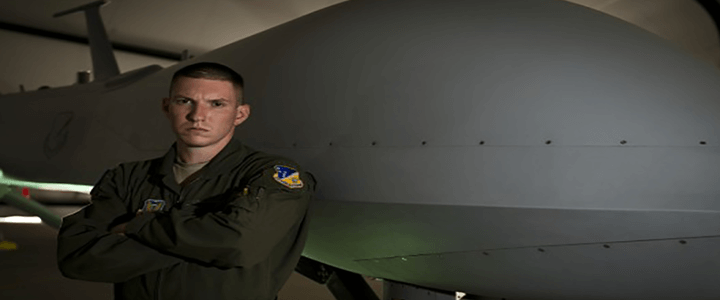The Air Force has announced that the first two enlisted airmen of 12 selected have soloed as part of training in the Remote Piloted Aircraft (RPA) training program. The Enlisted Pilot Initial Class began October 12 and initial flight training consists of 41 hours of classroom training and 21 hours of pilot training .
The two successful soloists are career airmen, and both are Master Sergeants. One of the two has civilian flight experience while the other was new to flying.
Air Force Struggles to Keep, Advance Pilots
The Air Force has been faced with a lack of RPA pilots for some years. The program calls for officers with a minimum of 1500 hours flying time. The service has struggled with retaining these officers for several reasons.
Air Force pilots command a salary premium in the civilian sector. Pilots with drone experience are in demand and Air Force salaries are generally less than those a pilot can obtain in other government agencies or as a civilian.
Additionally, service in the RPA program is not seen as a means for career advancement by many participants or promotion boards. Pilots see their careers enhanced by flying aircraft such as the F-35 or C-130. Drone piloting is perceived as little more than video gaming by some.
In December 2015 the Air Force’s announced enlisted airmen would be trained to fly the RQ-4 Global Hawk. Retention bonuses for RPA officer pilots was to increase to as much as $125,000.
Equal Pay for Equal Flights
In an address at the annual Air Force Association’s Air, Space & Cyber conference in September 2016, Air Force Chief Master Sgt. James Cody talked about the incentive pay issue for enlisted RPA pilots. He was emphatic that incentives would apply equally to enlisted and officer pilots. Their base pay may differ. “But if they’re doing the same type of technical thing, and we’re paying them for doing that technical thing, then yes, they’ll get the same money.”
The entire training program for enlisted RPA pilots is expected to take about a year. With the first two candidates having passed the first hurdle, the Air Force has begun a transition that many see as long overdue. If this effort succeeds with the Global Hawk, it can be expanded to the other RPA programs within the service.




